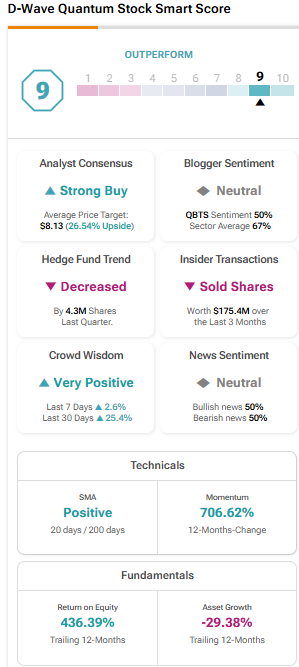WGA And SAG-AFTRA Strike: A Complete Guide To The Hollywood Shutdown

Table of Contents
Key Issues Driving the WGA and SAG-AFTRA Strikes
The dual WGA and SAG-AFTRA strikes are rooted in several critical issues affecting the livelihoods and working conditions of writers and actors. These issues, long simmering beneath the surface, have finally erupted into a powerful demonstration of collective bargaining power.
Fair Wages and Residuals in the Streaming Era
The rise of streaming platforms like Netflix, Disney+, and HBO Max has revolutionized how we consume entertainment, but it has also drastically altered the compensation model for writers and actors. The traditional television model, with its clear revenue streams and established residual payments, has been upended.
- Decreased streaming revenue sharing: Streaming services often operate with opaque financial structures, making it difficult for writers and actors to understand how profits are distributed. Residuals, payments received each time a show airs, are significantly lower than in the network television era.
- Lack of transparency in streaming viewership data: The lack of transparency around viewership numbers makes it difficult to negotiate fair compensation based on actual audience reach.
- Demand for a fairer share of profits generated from streaming platforms: Both unions are advocating for a more equitable share of the massive profits generated by streaming giants, arguing that the current system undervalues their creative contributions.
The shift to streaming has demonstrably lowered the income of many writers and actors, fueling the demand for a fairer, more transparent system of compensation. This core issue is a central driver of the strike.
Working Conditions and Job Security
Beyond compensation, both the WGA and SAG-AFTRA strikes highlight serious concerns about working conditions and job security within the entertainment industry.
- Demand for improved working conditions: This includes reasonable working hours, adequate rest periods, and better safety protocols on set. Long hours and grueling schedules have become commonplace, leading to burnout and compromising safety.
- Limitations on the use of AI in scriptwriting and performance capture: The increasing use of artificial intelligence in the creative process raises concerns about job displacement and the potential devaluation of human creativity.
- Increased safety measures on set: Incidents on film and television sets have highlighted the need for improved safety regulations and enforcement.
The unions are pushing for improved working conditions, not merely as a matter of employee well-being, but also as a matter of ensuring the sustainability of the creative professions.
The Role of Artificial Intelligence (AI) in Entertainment
The rapid advancement of artificial intelligence poses a significant threat to the future of writers and actors. The ability of AI to generate scripts and even mimic human performances raises serious ethical and practical concerns.
- Concerns regarding AI-generated scripts and performances: The unions worry that AI could replace human creatives, leading to job losses and a decline in the quality of storytelling.
- Demands for regulations on the use of AI in the entertainment industry: Both unions advocate for regulations to prevent the unethical use of AI and to protect the intellectual property of writers and actors.
- Protection of intellectual property rights: The use of AI raises concerns about the ownership and control of creative works, with questions about copyright and fair use emerging.
The incorporation of AI into the entertainment industry is a complex and multifaceted issue, with the unions playing a crucial role in shaping its future development and ensuring the protection of their members.
Impact of the Strike on the Entertainment Industry
The WGA and SAG-AFTRA strikes have already had a significant impact on the entertainment industry, extending far beyond the immediate participants.
Production Delays and Cancellations
The simultaneous strikes have brought nearly all major film and television production to a standstill.
- List of major projects impacted: Numerous high-profile films and television shows have experienced production delays or cancellations, including late-night talk shows, major network dramas, and blockbuster movies.
- Financial implications for studios and production companies: The shutdown is costing studios and production companies millions of dollars daily, impacting their bottom lines and potentially altering release schedules for future projects.
- Ripple effects on related industries: The strike's impact extends to related industries like catering, transportation, and post-production, creating a domino effect across the broader economy.
The widespread production delays and cancellations are a stark illustration of the power of collective action and the critical role that writers and actors play in the entertainment ecosystem.
Economic Impact on Workers and the Economy
The strike has had a devastating economic impact on many actors, writers, and crew members, whose livelihoods depend on ongoing productions.
- Statistics on job losses: Thousands of individuals are facing job losses and financial hardship due to the strike, significantly impacting their ability to maintain their livelihoods.
- Economic impact on local economies heavily reliant on film and television production: Cities and regions that depend heavily on film and television production are experiencing a significant economic downturn as a result of the strike.
- Support systems available to striking workers: Union resources and community support networks are providing crucial assistance to striking workers, helping them navigate financial hardship during the walkout.
The human cost of the strike is substantial, highlighting the vulnerabilities of those working in the entertainment industry and the need for fairer and more stable working conditions.
The Impact on Viewers and Consumers
The strike also affects viewers and consumers, who are experiencing delays in the release of anticipated shows and films.
- Impact on streaming services: Streaming services are experiencing content shortages, potentially impacting subscriber numbers and engagement.
- Potential for changes in future programming: The outcome of the strike may significantly affect future programming, including the types of shows produced and the creative freedom afforded to writers and actors.
- Viewer reactions and opinions: Viewers are expressing a range of reactions, from sympathy for the strikers to frustration over delays in their favorite programs.
The strike serves as a reminder of the complex relationship between the creative industry and its audience, highlighting the interdependency of the two.
Conclusion
The WGA and SAG-AFTRA strikes represent a watershed moment for the entertainment industry, exposing critical issues related to fair compensation, working conditions, and the transformative impact of new technologies like AI. The long-term effects of this shutdown remain uncertain, but the strikes underscore the urgent need for a more equitable and sustainable future for writers, actors, and the entire industry. To stay informed on the latest developments in the ongoing WGA and SAG-AFTRA strike, continue following reputable news sources and industry publications. Understanding the complexities of this significant labor dispute is crucial for navigating the evolving landscape of Hollywood and the future of entertainment. The fight for fair wages, improved working conditions, and responsible AI integration is far from over, and understanding this crucial labor action is key to understanding the future of the industry.

Featured Posts
-
 Nyt Mini Crossword Puzzle April 18 2025 Answers And Help
May 21, 2025
Nyt Mini Crossword Puzzle April 18 2025 Answers And Help
May 21, 2025 -
 Michael Strahan Soaked By Susan Lucci Video And Reaction
May 21, 2025
Michael Strahan Soaked By Susan Lucci Video And Reaction
May 21, 2025 -
 Southern French Alps Late Snowfall And Stormy Weather
May 21, 2025
Southern French Alps Late Snowfall And Stormy Weather
May 21, 2025 -
 Funko Releases The First Dexter Pop Figures
May 21, 2025
Funko Releases The First Dexter Pop Figures
May 21, 2025 -
 Antiques Roadshow A National Treasure And A Shocking Arrest
May 21, 2025
Antiques Roadshow A National Treasure And A Shocking Arrest
May 21, 2025
Latest Posts
-
 D Wave Quantum Inc Qbts Stock Market Activity This Weeks Developments
May 21, 2025
D Wave Quantum Inc Qbts Stock Market Activity This Weeks Developments
May 21, 2025 -
 D Wave Quantum Qbts Stock Plunges Kerrisdale Capitals Valuation Concerns
May 21, 2025
D Wave Quantum Qbts Stock Plunges Kerrisdale Capitals Valuation Concerns
May 21, 2025 -
 Factors Contributing To D Wave Quantum Inc Qbts Stocks Friday Gains
May 21, 2025
Factors Contributing To D Wave Quantum Inc Qbts Stocks Friday Gains
May 21, 2025 -
 Understanding The Monday Increase In D Wave Quantum Qbts Stock Price
May 21, 2025
Understanding The Monday Increase In D Wave Quantum Qbts Stock Price
May 21, 2025 -
 D Wave Quantum Qbts A Comprehensive Investment Analysis
May 21, 2025
D Wave Quantum Qbts A Comprehensive Investment Analysis
May 21, 2025
